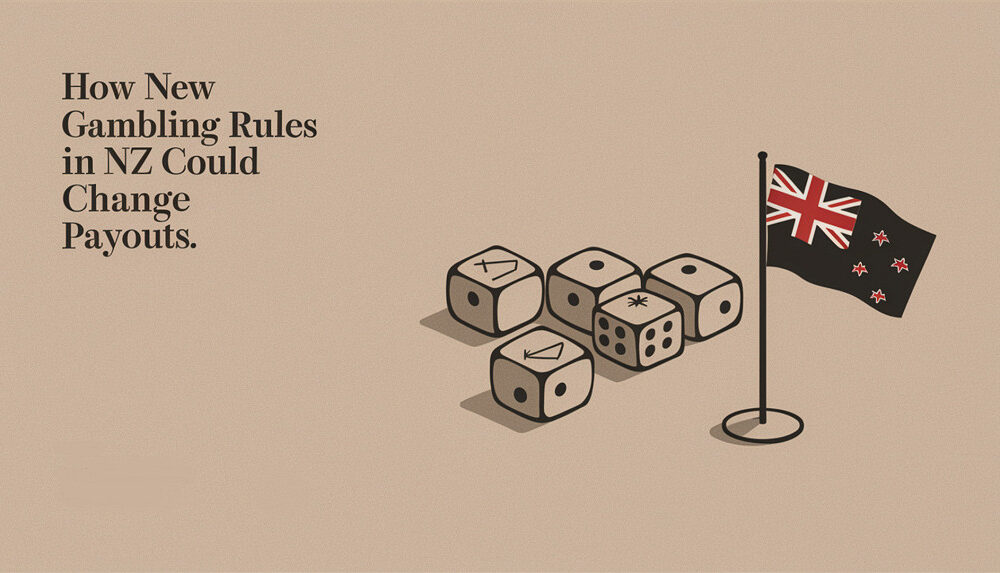New Zealand used to have flexible gambling regulations, with a broad choice of entertainment opportunities for risk-seekers. Land-based casinos are legal in the country and accept locals and tourists. At the same time, the iGaming sector is specific: in-country gambling sites are strictly prohibited, but there are no bans on offshore platforms’ operations. The government has recently announced changes in the industry regulations that will come into force in 2026. What are the main aspects, and how will they affect casino withdrawals in New Zealand?
NZ Online Gambling Bill: Policies’ Updates and Major Changes
The Department of Internal Affairs, the main authority supervising the iGaming sector in the country, is currently working on a new Gambling Bill that will make the industry more regulated. Currently, the market accepts overseas operators, and the number of platforms is growing. The government initiated a new body that will issue licenses, allowing it to limit the number of online casinos and make them more controlled.
Online gambling is one of the most popular digital entertainment options: according to recent surveys, over 80% of Kiwis regularly engage in this activity. Innovations and broad accessibility of virtual casinos attract customers, and the possibility of receiving instant payments boosts excitement. The best gaming sites featured on FastestPayout.co.nz offer instant withdrawals for the best experiences. However, the updated regulations may significantly impact payout speed and overall casino operations.
Reduced Number of Licensed Gambling Sites
New Zealand regulatory authorities plan to integrate the new legislation in 2026, and multiple discussions are still held. The government will limit the number of online casinos in the country to gain more control over the sector. Therefore, users will have a smaller choice.
This update may significantly impact withdrawal speed in online casinos: more players will likely join regulated platforms, so administrations will take more time to process their requests. Currently, the authority claims that up to 15 licensed operators will be available in the state, which is lower compared to the diversity of the 2024 market. On the other hand, this change will make the industry more transparent and safe for all parties.
Enhanced User Verifications
All online casinos providing services to Kiwis are obliged to comply with industry standards and guarantee consumer protection. Eliminating gambling-related harms is the top priority for regulators in 2024: according to statistics, up to 2% of New Zealand’s population struggles with compulsive problems. The government aims to reduce this percentage and educate users about the potential risks they take when joining online casinos.
Hence, stronger customer verification procedures will be initiated. Each gaming platform must check relevant players’ IDs to prevent underage from reaching potentially dangerous content. Youngsters are most vulnerable to gaming disorders since they lack responsibility and financial stability, at the same time taking higher risks. The same will concern gambling advertisements: casino promotions shouldn’t target users under 18, and non-compliance with this requirement will result in severe penalties for the operator.
Extended ID checks will directly affect withdrawal speed in online casinos. Administration cannot consider multiple requests simultaneously, so users must wait until their accounts are verified. Despite the automatisation of numerous procedures on gambling sites, identity checks will delay payouts. On the other hand, users will be able to have fun in a safe and reliable environment, being confident they are fully protected.
Offshore Gambling Duty for Overseas Sites
Although the new legislation will mostly concern in-country platforms, offshore operators can already notice changes. In the summer of 2024, New Zealand introduced increased taxes for foreign iGaming companies operating in the state. From 12th July, they must pay the budget 12% of their income. This change affects casinos’ revenue and can also impact withdrawals.
Some gaming sites have already increased payout fees, requiring customers to pay extra cash to claim their winnings. Moreover, the number of offshore operators in the country has decreased since not all companies can afford raised taxes, which also influences customers’ gambling choices.
Consequences of Gambling Bill for Operators and Players
Undeniably, the new regulation is the chance for in-country online casinos to be established and boost the NZ gambling sector. However, the need to acquire licensing from the local issuer implies additional operational expenses for the operator. Therefore, gambling companies may increase fees for their customers to avoid losses. Moreover, the number of online casinos will be strictly limited, creating monopolies in the state. In this case, gaming sites will set the rules, and players desiring to try this entertainment will have to follow them.
It’s now still unclear how the law will be implemented since it’s still being discussed by the government. Regulatory bodies focus on the harmful impact of online casinos on residents. However, some experts still claim that the proposed updates won’t work since players can opt for overseas platforms and land-based casinos. Still, the government has time to adjust regulations and satisfy all parties’ needs while maintaining a safer environment for risk-seekers.
Final Insight
Gambling updates are initiated worldwide since compulsive disorders have become a global challenge in the last few years. NZ has a well-developed casino sector, which, therefore, lacks regulations. The proposed updates will affect all industry operations but are initiated to bring positive changes. Players may face increased transaction fees and reduced withdrawal speed when interacting with the chosen online casino, but it’s still unclear how the amendments will be accepted.













